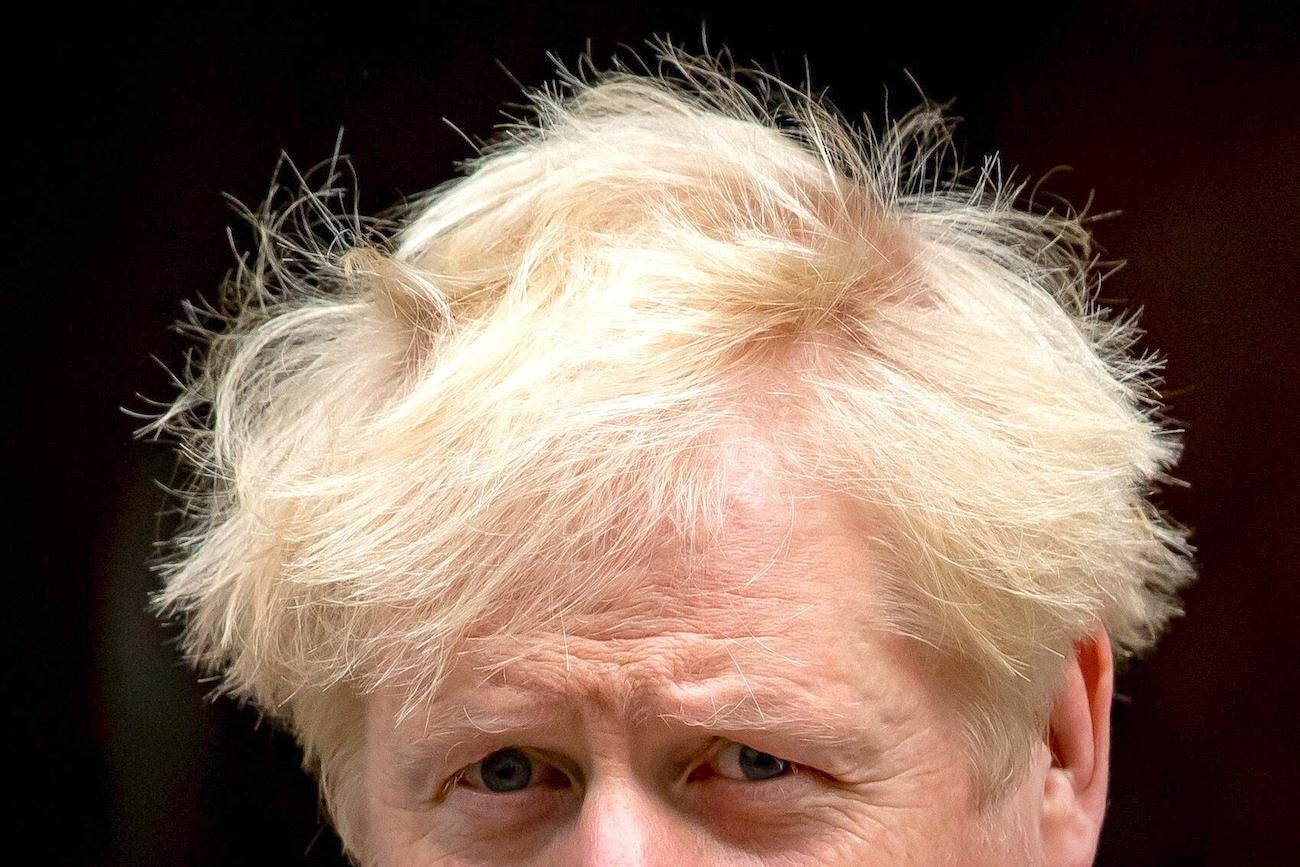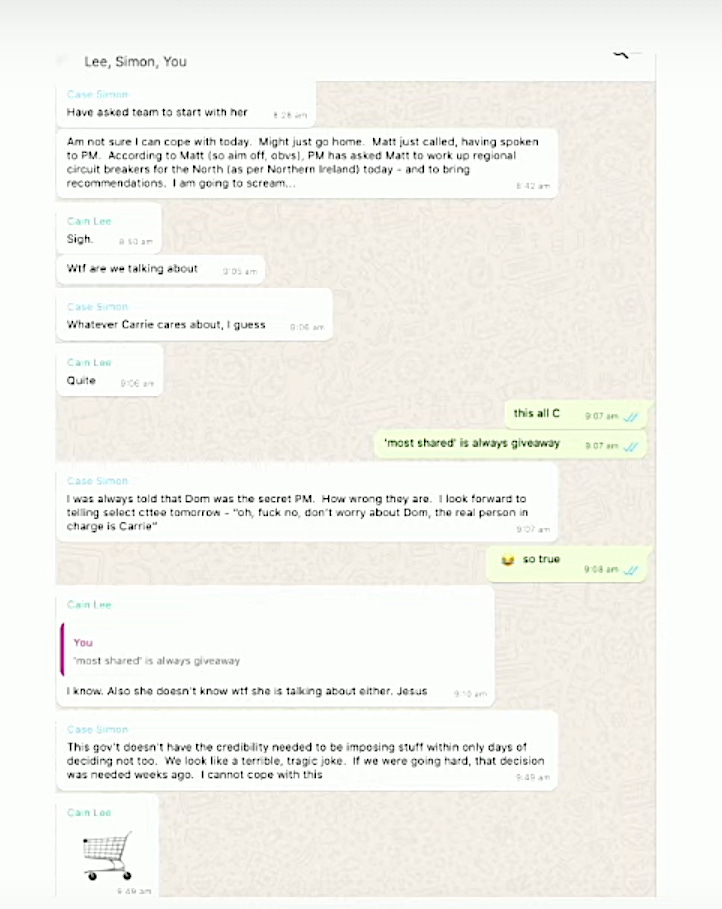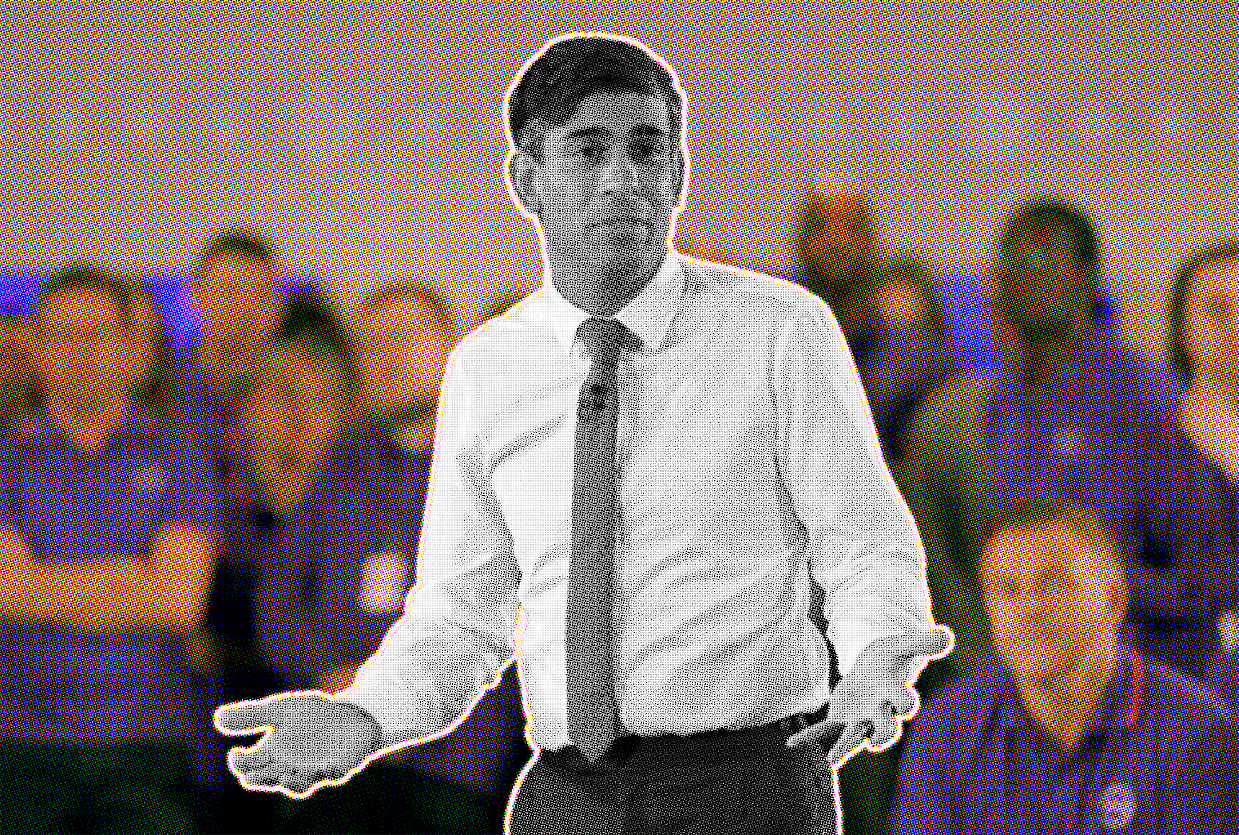Boris Johnson's Covid Handling was 'Terrible Tragic Joke' Said Civil Service Chief
New WhatsApps released by the Covid Inquiry show a chaotic Government whose mishandling of the pandemic had deadly consequences
Boris Johnson’s Government looked like a “terrible tragic joke” due to its mishandling of the Covid pandemic, with restrictions imposed weeks after they should have been, the Head of the Civil Service privately warned.
Newly-released Whatsapp messages sent between Sir Simon Case and Johnson’s former Communications Director Lee Cain show the two men in despair over the Prime Minister’s mishandling of the crisis.
“This Government doesn’t have the credibility to be imposing [restrictions] within only days of deciding not to…” Case wrote to Cain, during an undated exchange shown during Friday’s hearings at the Covid Inquiry.
“We look like a terrible tragic joke”.
Case went on to suggest that the restrictions, which appeared to include regional lockdowns, should have been imposed “weeks ago” if they were going to be imposed.
The two men also complained about the then Prime Minister’s lack of authority, suggesting that his wife Carrie was the person really in charge of the country.
“I was always told that Dom [Cummings, the PM’s adviser] was the secret PM”, Case wrote.
“How wrong they are. I look forward to telling the select committee tomorrow “oh, fuck no, don’t worry about Dom, the real person in charge is Carrie”.
Cain agrees with Case’s sentiment, adding that “she [Carrie] doesn’t know wtf she is talking about either. Jesus”.
The new messages are the latest in a series of exchanges released by the Inquiry revealing chaos at the top of Government during the pandemic.
In other messages officials complain about Cabinet infighting and the performance of the then Health Secretary Matt Hancock, who was branded a “liar”.
Johnson is also revealed to have refused to meet regularly with the leaders of the devolved nations, Mark Drakeford and Nicola Sturgeon, saying "That is not, in my view, how devolution is supposed to work”
Rishi Sunak is an ‘Upper Class’ Leader of an ‘Elite’ Party, Say Voters
Rishi Sunak is an “upper class” politician leading the political party which is most out of touch with the general public and which most represents the “elite”, according to an exclusive new poll for Byline Times.
The Prime Minister used his party conference speech last week to claim that only the Conservatives could stand up to “vested interests” in the country, while the Home Secretary accused the Labour Party of representing the “luxury beliefs” of a remote metropolitan elite.
However, a new poll conducted this week by pollsters We Think for Byline Times found that 62% of voters now believe that Sunak’s party most represents “the elite” compared to just 13% who say the same of Labour.
A majority of voters (51%) also labeled the Conservatives as the most “out of touch” party, compared to just 20% who picked Labour.
The Prime Minister also used his speech to paint himself as a child of relatively humble beginnings. This message has failed to get across to voters, according to our poll.
When asked what class background they believe Sunak comes from, 56% of voters said they believed he came from an “upper class” background, compared to 27% who said they believed he had a middle class background and just 8% who said he came from a working class background.
Voters were more split on Keir Starmer, who also used his conference speech to talk about his background.
Despite Starmer’s repeated references to his working class roots, our poll found that voters were most likely to believe the Labour leader had a middle class background (39%) with 24% believing he comes from an upper class background and just 20% believing he comes from a working class background.
Labour Most Trusted to Tackle Corruptio
n
Sunak claimed last week that only the Conservatives could be trusted with taxpayers’ money. However, our poll found little public trust in the ethics of the Government.
Half of all voters (49%) said that the Conservatives were the most “corrupt” party in the UK, compared to just 15% who picked Labour.
The findings come as the Labour party unveil new plans to clean up corruption in the UK.
The Shadow Chancellor Rachel Reeves used her conference speech in Liverpool to announce that a Labour Government would appoint a corruption commissioner charged with recovering billions of pounds in money defrauded from the taxpayer during the pandemic.
According to our poll, voters are more likely to trust Reeves’ party to do this than the Government, with 40% saying Labour would be most likely to recover the funds, compared to just 22% who said the Conservatives would be more likely.
This difference in trust levels in the two major political parties also extends to other issues, with 43% saying a Labour Government would be most likely to meet its promise to build more houses, compared to just 19% who say the same of the Conservatives.
The findings come as multiple post-election polls suggest Labour has either maintained, or extended, its lead over the Conservatives since the start of the party conferences.
A new YouGov poll on Friday gave Labour a 23-point lead, with Sunak’s own approval ratings reaching a record low of 20%.
If repeated at a general election, Keir Starmer’s party would likely gain a majority in excess of 300 seats, with multiple senior Conservative MPs, including the Prime Minister himself, set to be thrown out of parliament.
Most voters expect a Labour Government after the next general election, according to our poll, with 54% of voters saying they now think Keir Starmer is likely to be Prime Minister, compared to just 25% who think this is unlikely.
Voters Want Early General Election
The Prime Minister last week insisted that a general election is “not what the country wants”.
However, our poll found that a large majority of voters now want to go the polls by next spring at the latest.
Asked when the next general election should be held, 42% said it should be held in May 2024, with a further 30% saying it should be held before the end of the current year.
Just 17% believe it should be held in October next year, which is reportedly the date currently preferred by Downing Street.






“We look a terrible tragic joke” sums up the last 13 years of tory terror